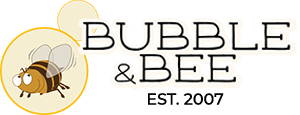Toxic Toothpaste
The Bigger Problem with the Toxic Toothpaste Recall
Stephanie Greenwood
July 17, 2007
A few months ago this headline and article caught my attention. I've highlighted the critically imortant points:
Toxic Chemical Leads to Toothpaste Recall…
June 15, 2007, NEW YORK (Reuters) - Colgate-Palmolive Co. said on Friday counterfeit toothpaste that may contain a toxic chemical posed a low health risk, and it was picking up suspected fakes labeled "Colgate" brand from discount stores in four U.S. states.Two residents of the New York City borough of Staten Island who said they had used the counterfeit toothpaste were hospitalized, the Staten Island Advance newspaper reported.
The counterfeit toothpaste may contain the toxic chemical diethylene glycol, or DEG, and is labeled as being manufactured in South Africa. It comes in a 5-ounce (100 ml) tube, a size Colgate does not make or sell in the United States, the company said.
The chemical is sometimes illegally used as an inexpensive sweetener and thickening agent. It is also found in solvents and antifreeze.
DEG-contaminated toothpaste has been seized in Costa Rica, the Dominican Republic, Panama and Nicaragua. The sweet substance, sometimes used as a substitute for glycerin, was found in cough syrup in Panama that led to the deaths of at least 100 people last year.
Sounds like nasty stuff, doesn't it? "What's this world coming to?" you might ask yourself. But there's a far bigger problem than just poisoned toothpaste. Although the chemical is banned for use in toothpaste, it's allowed in cosmetics.
Yes, you heard me right. It's allowed in cosmetics. The government says you can't put it in your mouth, but they say it's okay to rub all over your body's largest, most absorbent organ: your skin.
Diethylene Glycol isn't just one chemical, however. It's an entire family of chemicals that are found in over 600 commercially produced personal care products.
For instance, DIETHYLENE GLYCOL OLEYL ETHER has been linked to cancer and reproductive toxicity. Banned from cosmetics? Nope. It's in over 200 products, from hair dye to hand lotion, all with trusted brand names, (such as Clairol's Herbal Essences and Cetaphil). And DIETHYLENE GLYCOL MONOETHYL ETHER, a suspected carcinogen and endocrine disruptor, is in over 400 products, including bath salts, body lotions and shampoos. PROPYLENE GLYCOL is another similar chemical in the glycol family that acts as a penetration enhancer, breaking down skin cell membranes and permeating right into the bloodstream. You can even find it in some "organic" deodorants.
An even more concerning problem is that these chemicals are hard to recognize. They have many pseudonyms, including PEG 2 Stearate, Laureth-2, and Ceteth-2.
So, how does this happen? Why are toxic chemicals banned from toothpaste, but not lotion? I suspect it's because the effects of DEG-contaminated toothpaste happen more quickly, while using contaminated bath and body products show their effects after years of use. Doctors can't definitively prove that the cancer, MS, and infertility are caused directly by the suspect chemicals, so companies continue to use them.
The truth is that one in every 120 personal care products contains a known or probable carcinogen, and cosmetic companies are not required to test their own products for safety. The FDA only pulls a product off the shelf if it’s proven to be directly related to a number of easily-proven cases of death or disease. But chemicals shouldn’t remain innocent until proven guilty---it should be the other way around--especially with cancer rates as high as they are in America today.
For more information about specific chemicals around, check out my chemical database.There you can read about specific chemicals in easy-to-understand language. I'm constantly adding more chemicals to the database, so check it often for new info.
And, if you have a question about a specific chemical that's not listed in my database,www.ewg.org/skindeep is a great resource.
Choosing the most natural products around is really the only way to go. Ingredients like beeswax, herbs, and cold-processed oils have been used for hundreds of years, with proven safety for generations, as well as the positive health benefits (like omega-6 and omega-3 fatty acids) that synthetic chemicals just can’t boast.
